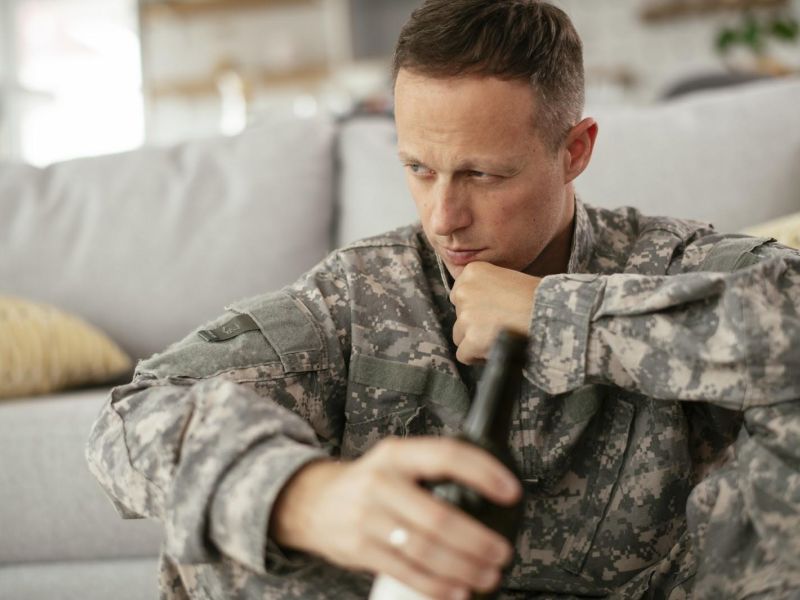
— DUI
Overview Of Laws For DUI/DWI In The Military
Being accused of DUI in the military can be an alarming experience. If this happens to you, you will likely have numerous questions about the potential impact of DWI in the military on your career in the armed services. The answers to those questions may depend in part upon the circumstances of your arrest, and whether the charges against you are filed in civilian court vs. referred for a military court-martial. An experienced military DUI lawyer with Driving Defense Law may be able to help you review the charges and help you to understand the factors that may be pertinent in your case. Call 757-929-0335 today to schedule a free consultation with our team.
What Happens If You Get a DUI in the Military?
Being charged with driving while intoxicated (DWI) while serving in any branch of the United States military can lead to a number of different outcomes, depending on the circumstances. Generally speaking, “drunk driving” cases charged under the Uniform Code of Military Justice (UCMJ) will be tried by court-martial. 10 U.S.C. § 809 Art. 9 precludes restraint without probable cause, whereas § 812 Art. 12 prohibits punishment prior to conviction, so in some respects, the process between arrest and trial for DWI in the military under the UCMJ may not be as different as the procedures attendant to the civilian justice system as one might think. The court-martial itself, however, may differ significantly from the structure and procedures of a criminal trial in a Virginia court.
For this reason, the overall shape of the proceedings, as well as their eventual outcome(s), may depend to some extent on whether the case is to be heard in a civilian court vs. adjudicated by a court-martial. The commanding officers of United States military installations located on domestic soil are enjoined to establish protocols for cooperating with local civilian law enforcement authorities. Although the specific procedures for information-sharing and handling details related to charges filed against military personnel resulting from conduct observed, or arrests made, off the grounds of the military base may differ somewhat depending on the installation commander’s approach, the laws of the state in which the base is located, and even the relative severity of the charges themselves under that state’s laws, in general an individual charged with DUI in the military in a civilian court can expect their commanding officer to collaborate with the local authorities in making the defendant available for a hearing and, in the event of a conviction, in providing a path to implementation for whatever punishment(s) the civilian court sees fit to impose.
DWI in the Military Charged in Civilian Court vs. Military Court-Martial
Charges for DUI in the military under the UCMJ may be filed somewhat differently depending on whether the incident pursuant to which the charges are filed is alleged to have taken place while the defendant was on duty, as “drunk on duty” is a separate court-martial offense under 10 U.S.C. §912.Art.112. “Drunken or reckless operation” of any of several types of motorized transports used for travel by land, sea, or air, is similarly a court-martial offense under 10 U.S.C. §912.Art.113 – raising the possibility of overlapping charges, depending on the circumstances of the case. If you are accused of one or both of these very serious offenses, consider scheduling a consultation to speak with an experienced DUI defense attorney right away.
For individuals charged with DUI while operating their personal vehicles on state or local roads during their “liberty” hours, the important procedural considerations are more likely to be determined by the laws of the state in which the charges are filed. § 18.2-266 of the Code of Virginia makes it “unlawful” to drive a car or “operate” any vehicle while under the influence of any of several controlled substances enumerated in the statute. § 18.2-270 categorizes a violation of § 18.2-266 as a Class 1 misdemeanor punishable by fine, in the absence of any aggravating factors, such as repeat offenses or a blood alcohol content (BAC) higher than 0.15. The mandatory minimum fine for a DUI conviction under § 18.266 is $250, but a conviction compounded by factors listed under § 18.2-270 can carry a jail sentence of five to 10 days, depending on the BAC determined by a “scientifically reliable” test.
Is a DUI in the Military a Dishonorable Discharge?
One of the most noticeable differences between “military justice” and most civilian charging and sentencing guidelines is the degree of discretion a commanding officer wields over whether, and how, to charge offenses committed by officers or enlisted service members under their command, according to the United States Department of Defense (DoD). Minor infractions may even be handled as disciplinary matters subject to nonjudicial punishment at the commanding officer’s discretion, pursuant to UCMJ § 815. DUI in the military is explicitly exempted from Article 815, as the UCMJ explicitly directs that offenses under Art. 112 are to be considered court-martial offenses. The commanding officer may, however, enjoy some latitude in determining the type of court-martial for which the matter is referred.
There are three types of courts-martial recognized by the United States military:
- Summary court-martial: Enlisted soldiers may be tried in a simplified proceeding intended to adjudicate allegations of minor offenses and apportion punishment where appropriate (i.e., upon conviction). This simplified proceeding is known as a summary court-martial. Only enlisted soldiers may be tried by this method, which is presided over by a single officer. Service members tried by summary court-martial do not have a right to legal counsel as they would in a more elaborate proceeding or a civilian trial. However, the accused is permitted to hire an attorney at his or her own expense. This option may be worth considering if you are referred for summary court-martial and concerned about the impact a DWI in the military may have on your future within the armed forces.
- Special court-martial: Commanding officers will generally refer more serious matters to a “special” court-martial. A special court-martial may be tried by either a single military judge or by a judge supported by a panel of at least three members. If the individual being tried by the court-martial is an enlisted soldier, he or she may request that at least a third of the members of the court trying the case be enlisted as well. Unlike a summary court-martial, a special court-martial will involve the services of both a prosecutor and a defense lawyer. The accused has the right to hire his or her own civilian defense attorney, but may also request military counsel.
- General court-martial: The highest level of trial court in the military, a general court-martial is reserved for the most serious crimes. A commanding officer might refer a case of DWI in the military for this type of court-martial if the drunken operation of a vehicle resulted in significant damage to another person, or to military or civilian personal property.
A general court-martial is managed in a way very similar to a civilian criminal trial. The procedures are less different from those of a special court-martial than from those of a summary court-martial, but any of the forms of court-martial will involve some attempt to determine innocence vs. guilt. In the event that a court-martial determines the accused to be guilty of violating Art. 112, a dishonorable discharge is just one of several possible consequences of receiving a conviction for DWI in the military. The exact penalties that may be applied in any individual case can depend on a variety of factors, such as whether the DUI arrest took place off-base vs. on the grounds of a military installation, whether anyone was injured as a result of the incident that led to the charges, and even the service record of the service member charged. Whether a charge for driving under the influence results in a discharge or not, receiving a DUI in the military can negatively impact your armed forces career, so you may wish to consider speaking with an experienced DWI attorney to discuss the legal options that may be available in your specific case.
Discuss Your DWI in the Military With an Experienced Virginia Attorney
One of the most important factors to consider if you are charged with DUI in the military is whether you are charged in a civilian court while serving in the military vs. accused and referred to a military court-martial. While courts-martial do have some similarities to civilian trials, their procedures also have important differences that can affect your options. A civilian trial, meanwhile, will involve considerations specific to the jurisdiction, so if you are charged by a state prosecutor because you were arrested for DWI in the military while traveling a civilian road then you may wish to work with an attorney in the state where you are charged. The Virginia traffic defense attorneys with Driving Defense Law have experience in both military and civilian courts, so call our Norfolk office at 757-929-0335 today to schedule a free case review.

